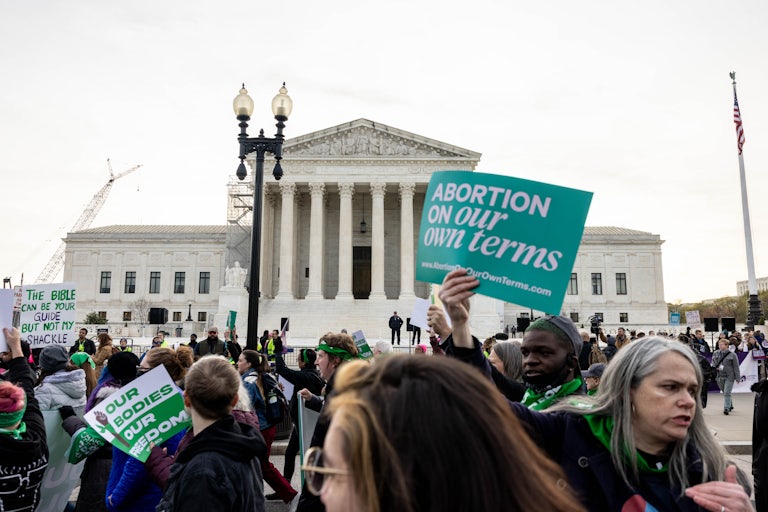Anti-Choice Lawyer Makes Huge Slip-Up in SCOTUS Abortion Pill Case
The lawyer arguing against the abortion pill at the Supreme Court made a slip of the tongue that revealed how flimsy the entire case really is.

The lawyer arguing the case against the abortion pill mifepristone in the Supreme Court made a major mistake Tuesday, when she let slip that the drug has only caused complications “dozens of times.”
Erin Hawley, who is married to Republican Senator Josh Hawley and works for the extremist legal group Alliance Defending Freedom, represents a coalition of anti-abortion groups seeking to block access to mifepristone. The group first sued in November 2022, arguing that the Food and Drug Administration improperly approved mifepristone and that doctors who oppose abortions could be harmed if they had to treat patients experiencing negative health effects from mifepristone.
“According to Guttmacher, nearly 650,000 women take mifepristone every single year,” Hawley said in arguments before the Supreme Court, referring to the pro-abortion access research group Guttmacher Institute. “It’s no surprise that respondents have seen an increase in emergency room visits and indeed treated women suffering from abortion drug harms tens of thousands of times.”
“Excuse me, dozens of times,” she corrected herself quickly. “Women have suffered tens of thousands of times.”
That huge numerical confusion could end up costing her, but at the very least, it reveals how baseless the entire case really is.
Mifepristone, which has been proven safe through more than 100 studies, is one of two drugs used in medication abortion, one of the most common abortion methods in the country. The drug has become a crucial tool for abortion access since Roe v. Wade was overturned in 2022.
A series of reports published last week by the Guttmacher Institute found that more than one million abortions were conducted in the United States in 2023. Of those, about 63 percent were medication abortions. And that number doesn’t even account for self-managed abortions when people took medication at home, such as people living in states with abortion bans who had the medication mailed to them.
Out of all of those medication abortions, very few actually result in the kind of emergency situations that Hawley describes. A study published in February in the journal Nature Medicine looked at more than 6,000 patients who took mifepristone and the companion drug, misoprostol, used to induce abortions. Of those patients, only 0.25 percent of them experienced a “serious abortion-related adverse event.”









